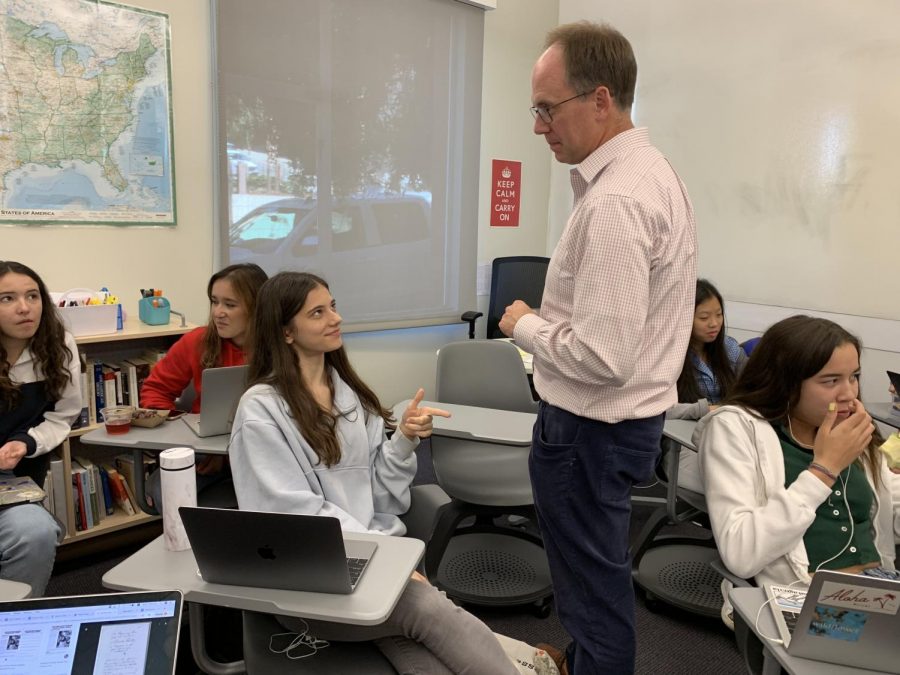Sophomores learn about colonization
Sophomore Lily Peta asks history teacher Michael. Stafford a question about the early colonists. The class consisted of both discussion and writing time.
September 11, 2019
WEB EXCLUSIVE To end the unit on Early Colonization in the Americas, sophomores in United States History are researching different groups of people in America during colonial times.
“I decided to choose the New England colonists because I don’t really know a lot about Massachusetts,” sophomore Anneli Dolan said. “In class when we learned about Cape Cod’s fishing, I was really interested and decided to learn more about it.”
The students will write about enslaved people, Native Americans, or colonists and read their work to the class in a presentation of their creative writing. Students must also find a primary source to grasp a better understanding of their person’s point of view.
“I decided to the Pennsylvania Quakers because I’ve always really liked the Quaker religion and how they are really focused on being kind to others,” sophomore Alia Mogannam said. “Mr. Stafford told us how they were one of the only provinces that actually worked with the Native Americans.”
This project was designed to fit into this year’s themes of America in a global context and what it means to be an American, according to History teacher Michael Stafford.
“Both of these themes fit really well into this particular project because we’ve got this global theme of colonization and Europeans colonizing the Americas, Indian Ocean, and other places, too,” Stafford said. “At the same time, we’ve got this big diversity of people coming into America.
A big part of the project is figuring out what each group wanted out of the colonization. After learning about the Protestant Reformation and the events in England at that time, sophomores have a better understanding of why some people decided to leave England for the American colonies.
“I really want them to walk away with this idea that Britain, as a country, may have wanted the colonies for one thing, but the colonists themselves wanted something different,” Stafford said. “That is what is going to be the main conflict that leads to the American Revolution.”










